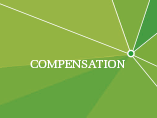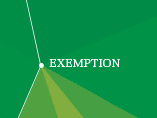“Korpus Prava. Analytics” — Tax & Law Magazine for Top Executives
Aimed at all business owners and managers of financial entities it offers new ways for organization of various processes, leading to more productive work and more successful development.
This quarterly magazine has gained popularity and a large regular readership because of the relevance of the actual subjects studied by KorpusPrava and of the proposals for action based solely on the company’s experience.
You can find interesting selected articles on our site or receive the full published edition by subscribing to the magazine. We are sure that the magazine will not only increase the efficiency of your employees, but also reduce costs for consultants.

Taxation
Off/On Shore
One of the topical subjects of the current year is requirements of offshore jurisdictions for organization of economic substance. In this article, we will try to answer the questions as to what it means, what is the reason for their introduction, whether they should be observed and what to do next.
AUTUMN 2019
Return home
The main condition for the current amnesty was the return of the declared assets to their homeland. It should be noted that not all assets are subject to repatriation, but only funds deposited in foreign accounts and foreign companies, which are to be redomiciled to the Russian Federation.
AUTUMN 2019
Decline of tax tourism
The tax control bodies acquire more and more tools to identify and control creative taxpayers. For example, one of the most effective tools is the international automatic exchange of tax information.
SPRING 2019
Complicated issues in simple terms
Often we do not fully understand the whole complexity of tax and accounting legislation until we face it in practice. One of such examples is the creation of reserves for vacation pay for tax purposes.
SPRING 2019
Amnesty 3-0: who is winning?
The third stage of capital amnesty starts in Russia. To be precise, this is not even the third stage, but the fourth, since the first amnesty, announced in 2015, was extended for six months from the initially declared period.
SPRING 2019
Major changes in the tax legislation effective from 2019
At the end of 2018, several enactments were adopted to introduce significant amendments to the tax legislation of the Russian Federation. Among them: the introduction of a tax for the self-employed, changes in the field of transfer pricing, changes in the legislation on CFC.
WINTER 2019
Big Brother Chronicles: peculiarities of doing business in the "digital age" of taxation
One of the most discussed topics throughout 2018 was active implementation of a risk-based approach among tax authorities. This article covers the highlights of 2018 associated with the advent of the "digital era" of taxation.
WINTER 2019
The main rule of reality is not to get lost in your illusions
In 2013, the OECD developed BEPS Actions Plan, a plan against the tax base erosion and profit shifting. The main goal of this plan is to solve the problem of double non-taxation or incomplete taxation.
WINTER 2019
Efforts by lawmakers
Since January 1, 2019, numerous changes to the Tax Code and other laws of the Russian Federation have become effective. The most debatable among them are VAT rate increases and changes in the procedure of pension assignment and payments.
WINTER 2019
All covered with benefits...
On August 3, 2018, the Russian Parliament adopted a number of legislative acts regulating the possibility of conducting the redomiciliation procedure of foreign companies in the Russian Federation in exchange for providing tax advantages.
AUTUMN 2018
Vague description of a vague idea
The "beneficial owner of income" institution was introduced into the Tax Code of the Russian Federation only in 2015, but has been successfully applied in other countries (including in Switzerland, Austria, Germany, the Netherlands, etc.).
AUTUMN 2018
Succession of pension savings of citizens
This law came into force on January 1, 2002 and marked an attempt to reform the pension system in Russia. Within the meaning of the law, a part of the employer's pension contributions was meant to form the funded part of the pension, however, since 2014, the funded system has been "frozen".
AUTUMN 2018
Every barber knows that
Federal Law No. 231-FZ dated 29 July 2018 (the Law) amending Part One of the Tax Code will come into force on 1 January 2019. According to this Law, the tax authorities will have the opportunity to obtain information about taxpayers from audit organizations and individual auditors (auditors).
AUTUMN 2018
All quiet on the western front?!?
The foreign exchange legislation of the Russian Federation has always been strict and imperative, but up until 2014 no one really cared about compliance with it. After amendments to the administrative code of the Russian Federation were introduced specifying that any fine for an illegal foreign exchange transaction equals to the amount of this transaction, many fellow citizens, particularly the ones living abroad, were put under threat of losing all their bank assets.
WINTER 2018
The yellow hound brought something round!
The New Year brought numerous changes, particularly in taxation. Changes were introduced to various chapters of the Tax Code of the Russian Federation, i.e. Corporate Profit Tax, Personal Income Tax, Simplified Tax System, Insurance Premium, Property Tax and many others. This article will cover those amendments that apply to the majority of legal entities and individuals in the Russian Federation.
WINTER 2018
It’s better to avoid big troubles than enjoy small benefits
The definition of the term tax advantage was given by Resolution of the Supreme Arbitration Court Plenum of the Russian Federation No. 53 On the validity estimation of tax advantages granted to taxpayers by arbitration courts (hereinafter – Plenum Resolution No. 53) dated 12.10.2006. The tax advantage is defined as the reduction of the tax burden due to tax base reductions, granted tax deductions, tax benefits, application of lower tax rates, and the granted right for tax refund (credit) or tax reimbursement from the budget.
WINTER 2018
Let’s see the colour of your money!
Fast development of the Armed Forces of the Russian Federation in recent years would have been impossible without the systematic renewal of the existing outdated equipment, which, in turn, required multi-million state budget injections as part of the Armaments 2020 priority procurement program. The major aim of the Armaments 2020 priority procurement program is to bring the percent of advanced arms and military equipment in the Russian armed forces up to 70% by 2020. To that end, 20.7 trillion rubles are to be allocated, with 19 trillion rubles aimed at arming forces, air forces and naval forces.
WINTER 2018
Practical application of section V.I of the tax code of the russian federation: 2017 in review
Russian courts have finally formed their official opinion on the key issues regarding the application of section V.I of the Tax Code of the Russian Federation. Let us recall that pricing regulation norms for deals between interdependent persons came into force in 2012.
WINTER 2018
Strengthening of tax control
2017 was abundant with conceptual approaches to tax control developed by tax authorities both for applicable approaches (methods) and for the introduction of execution limits to taxpayers’ rights to apply methods of tax saving.
WINTER 2018
Rate reduction and deduction cutdown: the most significant changes in the U.S. tax legislation introduced at the end of 2017
On December 20, 2017, Congress passed the Tax Cuts and Jobs Act of 2017 (TCJA), and President Trump shortly thereafter signed it. This law, most of which will become effective as soon as January 1, 2018, dramatically changes the tax environment of the United States. New financial planning strategies will emerge in the coming months and years.
WINTER 2018
Criminal liability for crimes in the sphere of business and other economic activities
Under the current legislation, any crime is punished with the criminal liability. However, crimes pose different levels of danger to the community, e.g. some crimes endanger lives and well-being, and their consequences are often impossible to compensate, while others endanger state economic interests and assets, and damages imposed thereby may be compensated.
WINTER 2018
Right After Me or the Legal Nature of the Subordinated Loan in Russian Law
At present the subordinated loans are legally regulated by the Law on Banks and Banking Activity, the Law on Insolvency, Provision on the Methods of Measurement of Equity Capital of Lending Institutions (Basel III). The subordinated loan (deposit, credit) agreements or terms of bonded debts are subject to the Rules of Civil Code of the Russian Federation on loan, credit, bank deposit or gift with due account of the aforementioned peculiarities.
AUTUMN 2017
What worries the accountants more this fall
- Are auditors the spies hired by tax authorities?
- Adjustment invoice: helper or additional problem? - The Federal Tax Service has no idea what happened last year
- Fine for improper statements
- Adjustment invoice: helper or additional problem? - The Federal Tax Service has no idea what happened last year
- Fine for improper statements
AUTUMN 2017
Reception of Foreign Law Institutions by the Russian Law as Exemplified by Establishment of the Inheritance Fund Institution in 2018
In its developmental stage the law is affected by historical, cultural, social and other factors, which can be both domestic and foreign. The fact that the Russian Civil Law is relatively young, if compared to the foreign legal experience matured over the centuries, somehow explains the strong influence of the foreign law on the Russian legislation, including entrenchment of many foreign legal patterns.
AUTUMN 2017
One Swallow Does not Make a Summer
Since 2015, Russian tax residents have operated under the legislation on controlled foreign companies. Moreover, next year automatic information exchange on financial accounts is to be launched, which serves as a control instrument allowing tax authorities to trace automatically financial flows of their tax residents.
AUTUMN 2017
What good news could the securities market bring to a taxpayer
For some time now legislators have tried to attract personal savings to the securities market. It may be explained by the fact that Russian companies desperately need financial injections, but many of them have no access to the market of cheap foreign credits.
The Russian investment market requires the so-called "long-term money", therefore, tax allowances for investors are granted only in case of a long-term holding of securities.
AUTUMN 2017
"Controlled" loan interests
The procedure for interest rate setting for controlled transactions is reasonably described and explained by legislators, whereas the procedure for interest rate setting for controlled indebtedness remains unclear.
SUMMER 2017
Same Old Story. Unified Social Tax
The Federal Tax Service has issued Taxpayer’s Memo, which was sent by telecommunications channels, to help the taxpayers.
SPRING 2017
Exchange Differences
Exchange differences arise in accounting and tax accounting, and also affect the amount of taxes of the organization.
SPRING 2017
Even If You Sit on the Stream Bottom, You Cannot Be a Fish
In addition to the steps aimed directly at combating terrorism financing, measures to increase the level of transparency to prevent money laundering and tax evasion were also proposed.
WINTER 2017
Audit Under Russian and International Rules
The last two years were a very difficult period for the audit community.
WINTER 2017
New Accounting Standards
In the upcoming several years radical revision of accounting standards valid in the Russian Federation is planned.
WINTER 2017
Complicated Life of the "Simplified" and Other Changes in the Tax Legislation
Some changes, which came into force during the year, have been unjustly deprived of attention against the background of more dramatic events taking place in the international arena.
WINTER 2017
Russia VAT Overtakes Modern Times
Since January 1, 2017, new rules for VAT taxation of foreign entities that provide services to individuals in electronic form or through the Internet.
AUTUMN 2016
FATCA: The US tax octopus and its worldwide tentacles
The US Foreign Account Tax Compliance Act (FATCA) is no longer news. The Act was issued in 2010, and after that it survived several revisions and came into legal force on July 01, 2014.
AUTUMN 2016
Hong Kong: A New Harbor for Russian Mutual Investment Funds
For a long time, closed-end mutual real estate investment funds have been an effective legal tool of tax planning, which taxpayers used to defer profit tax or to avoid profit tax completely on quite legitimate grounds.
AUTUMN 2016
CRS: Draft Law Overview
On November 4, 2014, Russia has ratified the OECD Multilateral Convention on Mutual Administrative Assistance in Tax Matters.
AUTUMN 2016
VAT without Borders: A Dangerous Carousel
This article continues the series of publications about the system of taxation with value-added tax in the European Union. In this issue, we look into a matter of tax violations related to VAT evasion.
SUMMER 2016
Korpus Prava Сomment Specific Issues of Capitals Amnesty
In 2015, plenty of mandatory requirements were introduced, which bind the residents of the Russian Federation to disclose information on external assets: the notice of participation in foreign entities, the notice of controlled foreign entities, the notice of cash flow on accounts (deposits) in foreign banks.
WINTER 2016
Tax Law Changes in Cyprus
In July 2015, the Minister of Finance of the Cyprus Government announced, at a press conference, the transmission to the House of Representatives of a package of tax Bills which he characterized as a very significant Tax Reform.
WINTER 2016
Cyprus introduces Notional Interest Deduction regime
In an effort to help the economy return to a growth path, the Government has introduced a Notional Interest Deduction (NID) regime on corporate equity.
WINTER 2016
Is a Good Plan Today Better than a Perfect One Tomorrow?
In November 2014, the law on controlled foreign companies, which was the target for criticism, discussions, comments and etc., was adopted.
WINTER 2016
ALL ATTENTION TO INCOME TAX
New 2016 gave us quiet a lot of changes in the tax law and, unfortunately, mainly to the disfavor of taxpayers.
WINTER 2016
What the Last Year Produced: Review of Law Amendments in 2015
This review addresses the most significant law amendments, which define legal issues that would be vital in Russia in 2016.
WINTER 2016
VAT in the European Union
If a VAT payer acquires services for personal use not related to business activity, location of service rendering shall be the location of the seller.
SPRING 2015
Review of Special Economic Zone Regime in Russia
In recent times the topic of import substitution became quite relevant. Let us look around our native land: maybe, Kaliningrad and Magadan can be a worthy replacement of traditional tax heavens like Cyprus and Malta?
SPRING 2015
The Concept of Actual Income Receiver (IP Box)
Since December 2013, deoffshorization of Russian business has been one of the most popular tax topics. At the beginning of the previous year, the Ministry of Finance published a letter describing prevailing schemes of tax mitigation using advantages stipulated in agreements for double taxation.
SPRING 2015
VAT 2015. Big Data collection system. Change of the procedure of control of deductions and consequences for taxpayers
Let’s consider in more details the procedure for control over deductions and consequences for taxpayers. From 1 January 2015, submitting VAT returns, we’ll begin to upload there purchase ledgers and sales ledgers, the ledger of invoices issued and received for intermediaries.
WINTER 2015
Amendments to the Russian law on individuals
The past year 2014 was not the easiest in the modern Russian history; besides global geopolitical changes, the “wind of change“ did not come by the Russian legislation as well.
WINTER 2015
Experts comments on specific issues related to the implementation of CFC
The CFC law is not our invention. It’s a trend. And we now move with the time. However, when reading the law one thing is clear: in a first approximation our bill is a usual CFC law.
WINTER 2015
International mutual assistance in tax matters: a helping hand or a noose around neck
In the wake of the financial crisis plaguing the world economy, countries came to the conclusion that new sources of income shall be opened as soon as possible, thus they focused their efforts on taxation, in particular on fighting against use of schemes of tax evasion.
WINTER 2015
New approach to the determination of tax residency of legal entities: now we’ll begin to live like in Europe
The gradual international division of labor and its deepening, opening of borders of different countries for sales and capital turnovers, emergence of new communication and transport means - all of these became reasons for the emergence of the phenomenon of globalization.
WINTER 2015
What the past year left: tax legislation amendments
From 1 January 2015 the list of cases when the tax authority may demand documents from the taxpayer in the course of the desk audit is extended.
WINTER 2015
Legal nature of tax consequences of transactions of accounts receivable financing (factoring)
Accounts receivable financing, also called in the theory of the Russian civil law and everywhere in the law enforcement practice as factoring, is a transaction binding two subjects: the client - creditor under the good supply agreement, work or service agreements concluded with the debtor, as well as the fiscal agent-intermediary accepting the monetary claims against the debtor.
WINTER 2014
Tax aspects of sale by foreign entity of real estate in the RF
As such, for example, is the situation in which a foreign entity that does not operate in the Russian Federation through a permanent representative office sells real estate in Russia.
WINTER 2014
Tax accounting and accounting: closer to each other
The result of numerous discussions about the need of convergence of accounting and tax accounting was the RF President signing on 20 April 2014 of the Federal Law 81-FZ "On Amendments to Part Two of the RF Tax Code".
WINTER 2014
Taxation of inherited property
Death is an inevitable condition of human nature. Sooner or later everyone faces death of loved ones, and, as a rule, the issue of inheritance of property belonging to the deceased person always arises.
WINTER 2014
Squeezed but pleased: taxation of passive income in the European Union
In recent years a trend towards registration of companies in the European jurisdictions with middle-income tax, for example, the Netherlands, Ireland, has been noticed.
WINTER 2014
VAT without borders or window to Europe
In 2007 the EU Council Directive 2006/112/EC on the common system of value added tax came into force.
WINTER 2014
Substance requirements in tax planning structures
The doctrine ‘Substance over Legal Form’ allows tax authorities to ignore the legal form of an arrangement and to look into what happened actually. The aim is to prevent artificial structures from being used for tax avoidance purposes.
WINTER 2014
Hard way home: legal integration of Crimea into Russia
Political events unfolded so quickly that it was necessary to make decisions immediately. The most important thing was to use the results of the referendum in the Crimea and to formalize legislatively the Crimea as part of Russia.
AUTUMN 2014
Bitcoin: revolution of currency system or new way to take money from people
Now virtual currency, circulating in the Internet space, constitutes software package, which is called "Bitcoin", originating from combination of English words "bit" - unit of information, and "coin").
AUTUMN 2014
Overview of amendments to the Tax Code of the Russian Federation with respect to individuals
In 2013, a number of developments in the legislation on taxes and fees relating to individuals were adopted. Thus, one of the latest developments of the past year was the postponement of the term of payment of property tax, vehicle tax and land tax.
AUTUMN 2014
Innovations in legal regulation of taxation by corporate property tax: problems and solutions
In late 2013 Russian President Vladimir Putin signed perhaps one of the most talked about acts in the past year, which radically changed approach to the calculation of corporate property tax and substantially increased tax burden for certain categories of taxpayers.
AUTUMN 2014
How are we going to fight money laundering
Amendments were made to such regulations of the Russian Federation as Criminal Code of the Russian Federation, Administrative Offences Code of the Russian Federation, Civil Code of Russia as well as in a number of important federal laws.
AUTUMN 2014
Reform of the State Order: old tales in a new way
It is already not a secret that since January 1, 2014 the Federal Law of April 05, 2013 No. 44 -FZ "On contract system in procurement of goods, works and services for state and municipal needs" (hereinafter the Law N 44 - FZ, new law) comes into force.
AUTUMN 2014
What has made the past year. Reform of the civil law
The past year was marked by numerous innovations of the Civil Code of Russia, which were stepwise introduction by four federal laws. This reform was expectable and has been widely discussed for several previous years, since publication in 2009 Concept of development of civil law.
AUTUMN 2014
New rules on the main point: changes into the legislation on transactions
Back in the Concept of Civil Law (hereinafter - the Concept) approved by the Federation Council in 2009 mixing of different systems of state registration was mentioned as well as a need to switch to a uniform system.
AUTUMN 2014
Securities at a new light
In the first place the legislator defines the securities and divides them into two categories - certificated and non-certificated.
SPRING 2014
The first year under the new rules: a review of the Russian Finance Ministry clarification on transfer pricing
2013 was an important milestone in the implementation of Russia's international principles of transfer, ie, intra-, pricing, developed by the Organization for Economic Cooperation and Development, the observance of which is intended to bring Russia closer to the international community in monitoring transactions between related parties.
SPRING 2014
IFRS in Russia
The International Financial Reporting Standards allow to increase transparency of the companies’ activities, broaden the opportunities for analysis of their financial details, simplify the procedure for accessing the international markets.
WINTER 2013
The New Law on Accounting
The Federal Law dated 06.12.2011 N 402-ФЗ "On Accounting" has come in force on 1st of January 2013. We shall review the principal differences of the provisions of the new Law "On Accounting" and the provisions of the Federal Law dated 21.11.1996 N 129-ФЗ previously in force.
WINTER 2013
Software for Filing of Transactions for the Purposes of Transfer Pricing
Due to the adoption of the law on transfer pricing the tax payers are faced with the issue of documenting of transfer pricing transactions. As s rule, a tax payer has several options – to user the assistance of consultants, to use the internal resources or to buy the software for filing of transfer pricing transactions.
WINTER 2013
Major amendments in special taxation frameworks as from 2013
The changes in the Tax Code of the Russian Federation are aimed at perfecting of special taxation frameworks – the patent taxation system, the taxation as a single tax on imputed earnings for certain activities, the reduced taxation system, the taxation for agriculture.
WINTER 2013
Transfer Pricing Methods: comparative analysis
Brief comparative analysis of the international methods of transfer pricing, to cover the main requirements for the application and choice thereof in various jurisdictions.
WINTER 2013
Introduction to China Taxation
As inbound investment into China continues to be of interest to foreign investors, it is important to understand the legal and administrative framework of China’s tax laws, general types of taxes under the current tax regime, relationship of domestic tax law to international tax treaties, etc.
WINTER 2013
Protocol to tax agreements: unification of regulations or tightening of screws
The signing of Protocol to the Agreement for the Avoidance of Double Taxation with Respect to Taxes on Income and Capital between Government of the Russian Federation and Government of the Republic of Cyprus.
WINTER 2012
Factoring As Tax Optimization
The new economic reality of the Russian Federation features the persistent cash gap faced by business owners when suppliers refuse to accept deferred payment terms, buyers are reluctant to pay in advance for delivery, and banks either do not grant working capital loans or increase their interest rates.
SPRING 2011
Elimination of Double Taxation
Elimination of double taxation is achieved either by exemption in the country of residence and taxation only in the country of source or with the credit of foreign tax by the country of residence.
SPRING 2011
What determines probability of appointment of field tax inspection
The bulk of disputes with tax authorities stems not from errors in tax records but as a result of actions of the taxpayer to “optimize taxation”.
SPRING 2011
See Also























































































